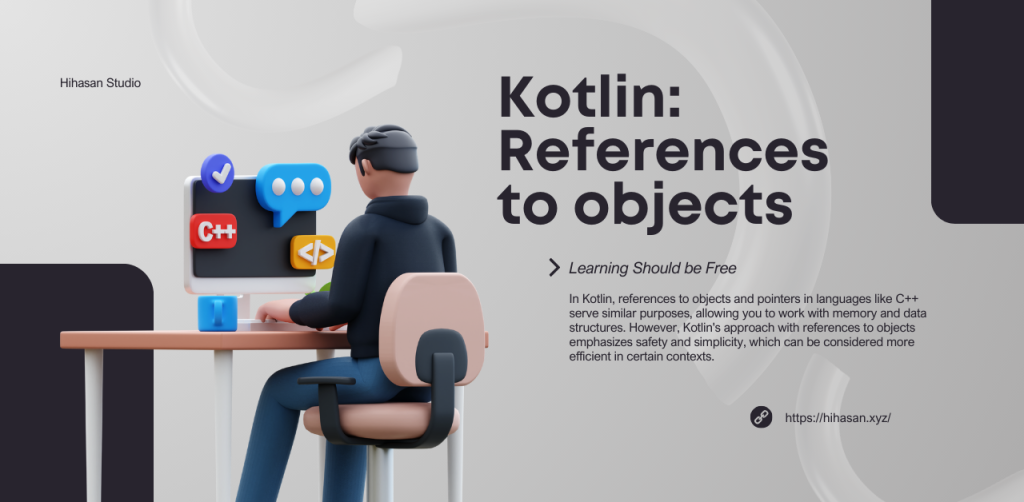In Kotlin, references to objects and pointers in languages like C++ serve similar purposes, allowing you to work with memory and data structures. However, Kotlin’s approach with references to objects emphasizes safety and simplicity, which can be considered more efficient in certain contexts. Here are some reasons why references to objects in Kotlin can be seen as more efficient:
- Null Safety: Kotlin’s type system is designed to eliminate null pointer exceptions at runtime. By using nullable types and making the distinction between nullable and non-nullable types explicit, Kotlin reduces the risk of null pointer errors. This contributes to more reliable and robust code.
- Automatic Memory Management: Kotlin, like many modern languages, has automatic memory management through garbage collection. This means developers don’t need to manually allocate and deallocate memory, reducing the risk of memory leaks and other memory-related issues.
- Simplified Syntax: Kotlin’s syntax is designed to be concise and readable. It eliminates the need for manual memory management and complex pointer arithmetic, which can lead to more maintainable code. This simplicity can enhance developer productivity and reduce the likelihood of errors.
- Immutable by Default: Kotlin encourages immutability, and many objects are designed to be immutable by default. Immutable objects simplify reasoning about the program state and can make concurrent programming more manageable. Immutable objects are less prone to race conditions and other concurrency issues.
- No Direct Memory Manipulation: Kotlin does not provide direct access to memory addresses or explicit pointer arithmetic. While this might limit certain low-level optimizations, it also significantly reduces the risk of memory-related bugs and security vulnerabilities.
- Platform Independence: Kotlin is designed to be a cross-platform language. Code written in Kotlin can run on the Java Virtual Machine (JVM) and Android and even compile to native binaries with Kotlin/Native. This platform independence can contribute to more efficient development workflows and broader compatibility.
It’s essential to note that the efficiency of a programming language or its features depends on the context and the specific use case. While Kotlin’s approach may be more efficient regarding safety, readability, and developer productivity, there are situations where low-level languages with pointers might be more suitable for performance-critical tasks. In such cases, developers often need to weigh the trade-offs between safety and performance based on the requirements of their specific application.

